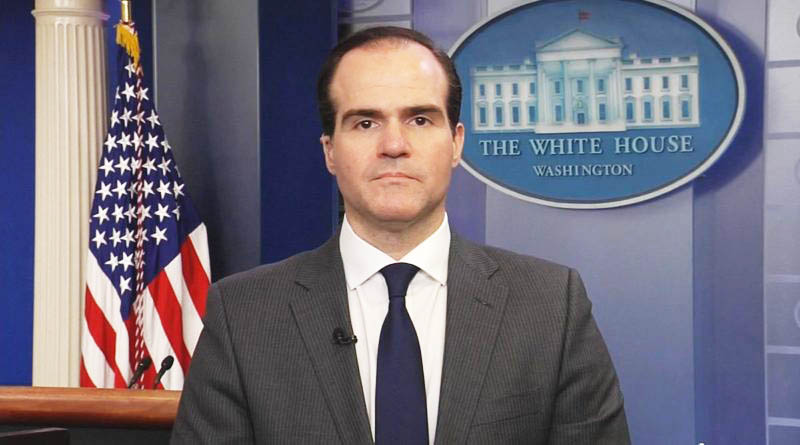BUENOS AIRES/WASHINGTON, (Reuters) – U.S. President Donald Trump’s pick to run Latin America’s main financing institution appears poised to win the top job in this weekend’s election amid faltering regional opposition to having a U.S. citizen run the bank for first time in 61 years.
Mauricio Claver-Carone, Trump’s senior Latin America adviser known for his hardline stance on Venezuela and Cuba, has majority support to head the Inter-American Development Bank (IDB). But a group of countries, including Argentina, Chile, Mexico and Costa Rica, had appeared close to having the 25% vote needed to block the election.
Some countries that had opposed Claver-Carone’s candidacy now privately concede they do not have the backing they had sought.
An Argentine Foreign Ministry official suggested plans to halt the vote were off the table because “there are not enough willing” member countries to block the U.S. candidate.
The IDB vote has become a geopolitical battle between the Trump administration, which is eager to gain leverage in resource-rich Latin Ameri-can and counter the rise of China, and some in the region who do not want to lose control of the lender.
The IDB has been led by Latin Americans since its inception in 1959, while the World Bank has historically been led by a U.S. citizen.
Mexico, which was key to blocking the vote, has signaled it will not block the quorum needed to hold the election, a source familiar with the process said, adding: “The election is all but decided.”
Asked about Mexico’s position, a senior Trump administration official told Reuters: “Mexico is our friend, neighbor and largest trading partner. We will always have a fluid dialogue across a broad range of issues.
“As regards the IDB specifically, we have asked all member countries to respect the democratic will of the majority for selection of the next president, regardless of their candidate preference,” the official said.
Former Mexico Foreign Secretary Jorge Castañeda wrote in an opinion column that Mexican Presi-dent Andres Manuel Lopez Obrador had failed to galvanize opposition to Trump’s nominee.
“Argentina could not block the election by itself; everything was in the hands of Mexico and (the president),” Castañeda wrote. “He chickened out.”
Mexican Deputy Finance Minister Gabriel Yorio told Reuters the country had been in favor of postponing the vote but that a delay no longer seemed likely.
“Mexico’s position was to take some time to discuss this, but it seems that it will not happen. It seems that the vote will take place over the weekend,” Yorio said in an interview.
The Latin American countries that called for a delay held around 22% of the bank’s voting share – shy of the 25% needed to block a quorum on voting day. Argentine officials were hoping European countries would join their efforts and tip the balance.
Argentine Foreign Minister Felipe Sola told a local radio station this week that Europe failed to come through.
“We are going to ratify our position that the IDB cannot be led by a U.S. candidate and that it cannot fall prey to the competition between the U.S. and China,” the Argentine Foreign Ministry official said. He added that Argentina’s candidate for the IDB post had already been officially nominated.
The IDB was founded as a partnership between the United States and 19 Latin American countries and expanded over time to include nations around the globe.

